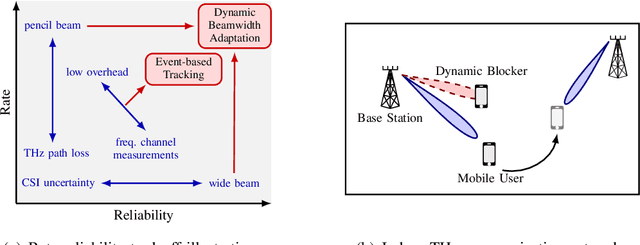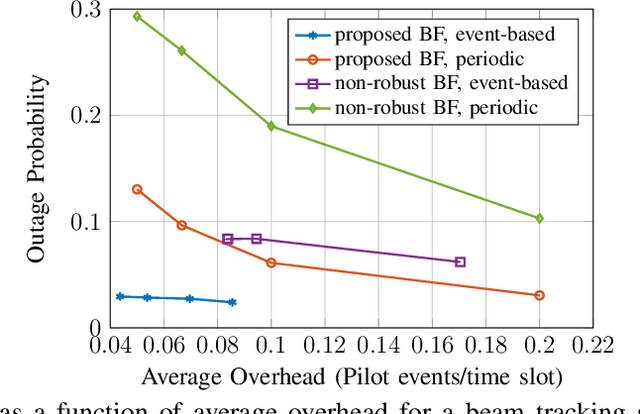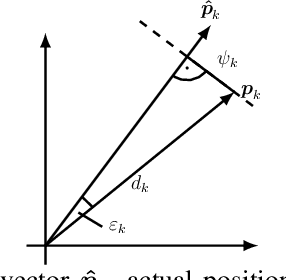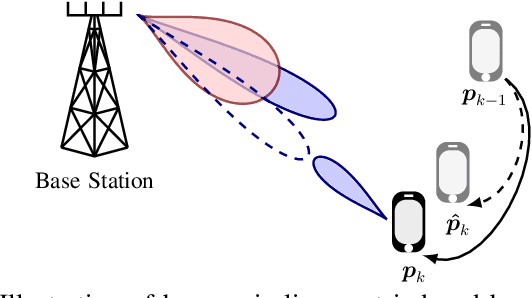Reliable Beam Tracking with Dynamic Beamwidth Adaptation in Terahertz (THz) Communications
Paper and Code
Jan 17, 2022



THz communication is regarded as one of the potential key enablers for next-generation wireless systems. While THz frequency bands provide abundant bandwidths and extremely high data rates, the operation at THz bands is mandated by short communication ranges and narrow pencil beams, which are highly susceptible to user mobility and beam misalignment as well as channel blockages. This raises the need for novel beam tracking methods that take into account the tradeoff between enhancing the received signal strength by increasing beam directivity, and increasing the coverage probability by widening the beam. To address these challenges, a multi-objective optimization problem is formulated with the goal of jointly maximizing the ergodic rate and minimizing the outage probability subject to transmit power and average overhead constraints. Then, a novel parameterized beamformer with dynamic beamwidth adaptation is proposed. In addition to the precoder, an event-based beam tracking approach is introduced that enables reacting to outages caused by beam misalignment and dynamic blockage while maintaining a low pilot overhead. Simulation results show that our proposed beamforming scheme improves average rate performance and reduces the amount of communication outages caused by beam misalignment. Moreover, the proposed event-triggered channel estimation approach enables low-overhead yet reliable communication.
 Add to Chrome
Add to Chrome Add to Firefox
Add to Firefox Add to Edge
Add to Edge